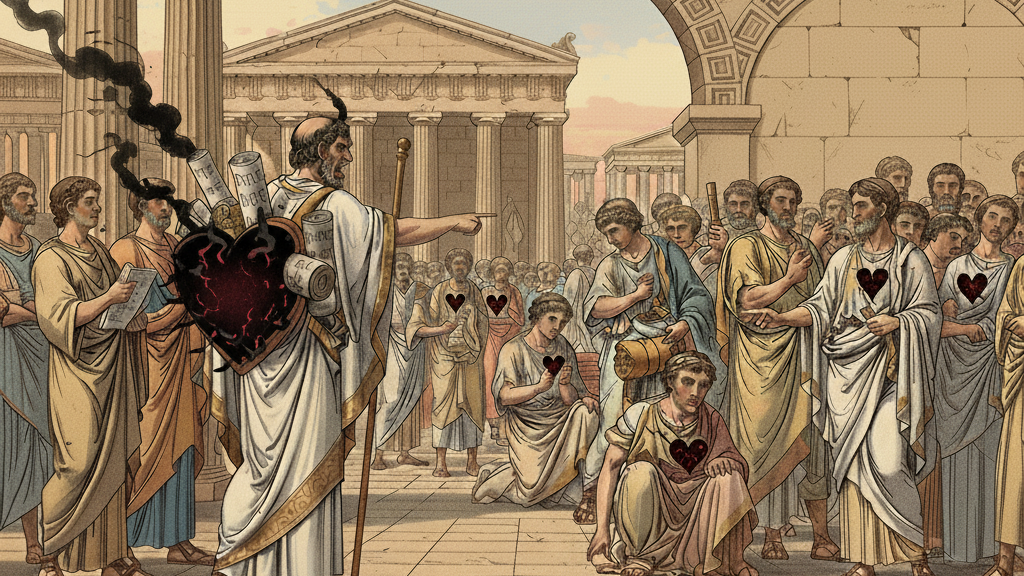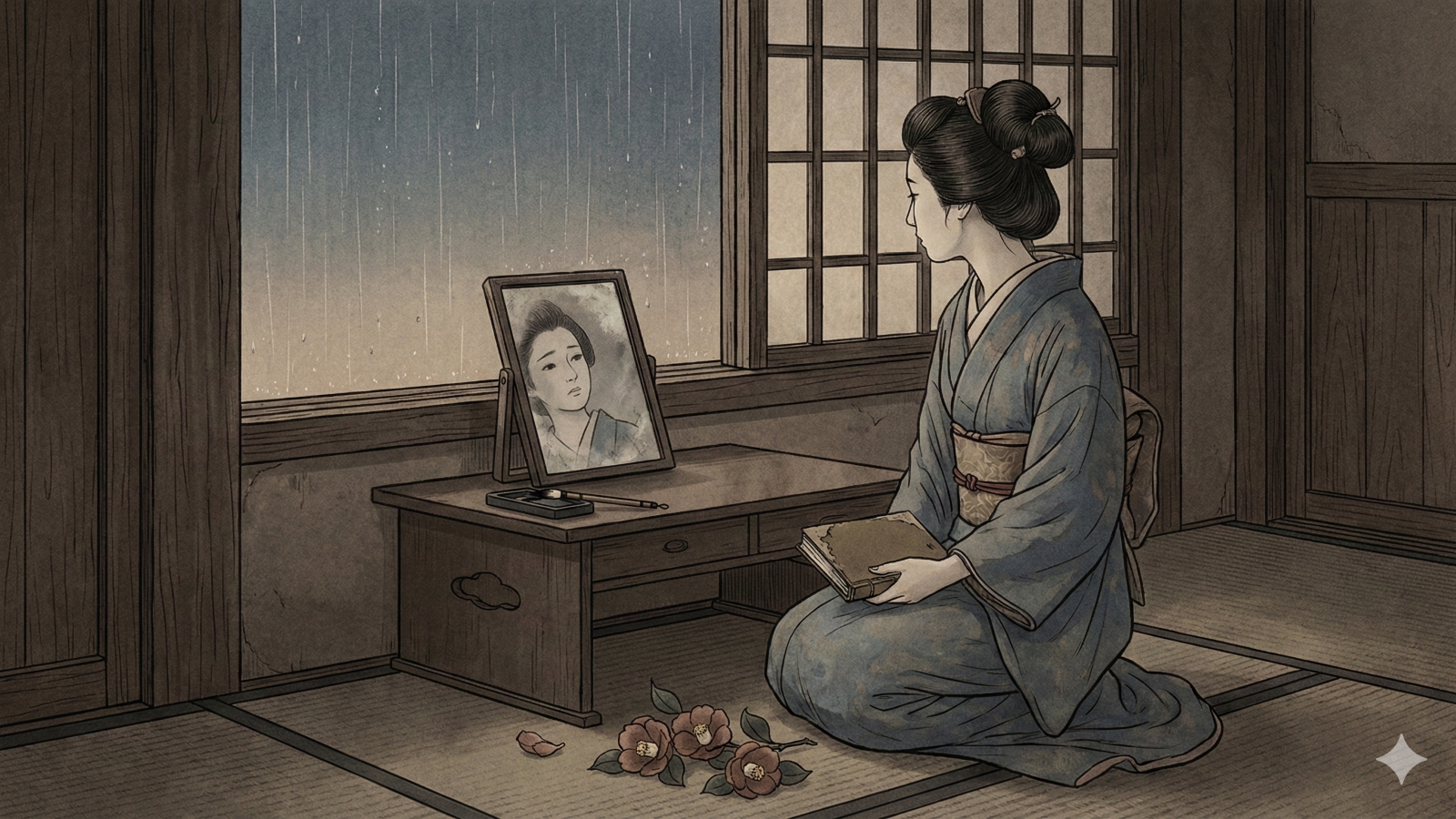Controlling Anger and Inner Harmony - A Roman Sage on Building an Immovable Soul
Seneca, Plutarch, Aristotle... These thinkers explored how to control the inner passion of anger and maintain a tranquil soul. This article introduces timeless wisdom for composing the mind.

“Ad ista concitari insania est.”
To be stirred by such things is madness.
—— Seneca, De Ira, 2.25.1
[Commentary]
Is flying into a rage over trivial matters the act of a sage, or a madman? Seneca condemns the angry reaction to everyday trifles as “madness,” offering a stern warning. To get upset over insignificant events—a servant moving too slowly, drinking water being lukewarm, a bed being untidy—is nothing less than a state of lost reason. This sharp critique highlights how easily our emotions can be ignited by the smallest sparks. According to Seneca, true strength lies in possessing an immovable soul, unshaken by external circumstances; getting angry over trivialities is merely proof of a weak soul.
“Maximum remedium irae dilatio est”
The greatest remedy for anger is delay.
—— Seneca, De Ira, 3.12.4
[Commentary]
To extinguish a raging fire, should one first wait rather than douse it with water? Seneca presents “time” as the most effective prescription for the violent passion of anger. The initial impulse of anger is fierce, clouding the eye of reason, but by allowing a little time to pass, its heat subsides, and the dark clouds covering the mind clear away. He taught that by not rushing to judgment, by waiting even an hour, let alone a day, an impulsive reaction can be transformed into a calm decision. This technique of “delay” is a timeless piece of wisdom for observing one’s emotions from a distance rather than being immediately engulfed by their waves.
“Dat poenas dum exigit.”
While it exacts punishment, it suffers punishment.
—— Seneca, De Ira, 3.5.6
[Commentary]
Does the blade that wounds another simultaneously wound one’s own hand? With this sharp antithesis, Seneca masterfully expresses the self-destructive nature of anger. Anger seeks retribution and punishment for others, but in the process, the angry person themselves suffers the “punishment” of losing peace, having their heart consumed by hatred, and destroying relationships. This phrase suggests that anger is not only an attack directed at others but also an attack on one’s own soul. Venting anger may seem like an exercise of power, but it is, in fact, nothing more than an act of self-harm—a profound insight of Stoicism condensed into these words.
“Aliena vitia in oculis habemus, a tergo nostra sunt.”
The vices of others are before our eyes; our own are behind our back.
—— Seneca, De Ira, 2.28.7
[Commentary]
Just as we cannot see our own face without a mirror, perhaps it is difficult to see our own faults without the help of others. With this famous maxim, Seneca points out how sensitive humans are to the mistakes of others, yet how oblivious they are to their own. We are quick to get angry at the words and actions of others, but we rarely stop to reflect on whether we have not committed similar errors ourselves. This saying teaches us that when feelings of anger arise, we should first turn our gaze inward before directing it outward. The key to restraining unjust anger toward others lies in the humility of acknowledging our own imperfections.
“οἱ γὰρ ὀλίγων δεόμενοι πολλῶν οὐκ ἀποτυγχάνουσι.”
For those who require little do not miss out on much.
—— Plutarch, On the Control of Anger, 461c
[Commentary]
Do those who have little also know little of the sorrow of loss? With this concise phrase, Plutarch explains the importance of reducing one’s desires as a mindset for controlling anger. When we seek many things and grow accustomed to a luxurious lifestyle, the slightest unmet expectation or frustration can easily give rise to dissatisfaction and anger. However, a person who does not seek much to begin with and can be content with a simple life has fewer opportunities for disappointment in the first place. This saying suggests that the root of anger often lies in unfulfilled desires. Here lies the ancient wisdom that to maintain peace of mind, it is essential not to pursue external things but to cultivate inner satisfaction—that is, a spirit of self-sufficiency.
“ἀόργητος μὲν γὰρ εὐθέως […] γενέσθαι τις οὐ δύναται, κατασχεῖν δὲ τὸ τοῦ πάθους ἄσχημον δύναται.”
For one cannot immediately become free from anger, but one can restrain the ugliness of the passion.
—— Galen, De propriorum animi cuiuslibet affectuum dignotione et curatione, 4
[Commentary]
Which is a more realistic goal: becoming a perfect saint, or striving to become a better person? Galen, who was also a physician, takes a practical approach to the treatment of the soul. He acknowledges that completely eliminating the emotion of anger is not something that can be achieved instantly upon wishing it. However, he argues that even if feelings of anger arise, it is possible to suppress its ugly manifestations—that is, actions like shouting or resorting to violence. This suggests the importance of starting with achievable goals rather than becoming discouraged by the pursuit of an ideal. The path to controlling anger begins not with the complete eradication of the emotion, but with the steady step of controlling its destructive behaviors.
“ὥσπερ κύων ὑπὸ νομέως, ὑπὸ τοῦ λόγου τοῦ παῤ αὐτῷ ἀνακληθεὶς πραϋνθῇ”
Just as a dog is called back by a shepherd and becomes gentle, so too by the reason within oneself.
—— Galen, De placitis Hippocratis et Platonis, 5.7
[Commentary]
Within our minds, is there a loyal guard dog and a shepherd to guide it? Galen quotes this vivid metaphor from Plato’s Republic to explain the structure of the soul. According to Plato, the “spirited” part of the soul (θυμός), which encompasses anger and combativeness, is neither good nor evil in itself, but rather like a guard dog. When this dog becomes a faithful ally that listens to the voice of reason, the soul maintains its order. This passage illustrates Plato’s idea of not viewing anger as an evil to be eradicated, but as a force to be used correctly under the guidance of reason. Self-control is nothing other than training this inner guard dog to obey the voice of its wise master, rather than letting it run wild.
“οὐ γὰρ ἀεὶ ἡ ὄρεξις καὶ ὁ λόγος συμφωνεῖ.”
For appetite and reason do not always agree.
—— Aristotle, Eudemian Ethics, 1224a
[Commentary]
Is our mind a harmonious choir always facing one direction, or is it two musicians who sometimes play a dissonant chord? With this concise statement, Aristotle reveals the root of human inner conflict. Within the soul, there exists “appetite” (ὄρεξις), which seeks something based on pleasure and pain, and “reason” (λόγος), which judges good and evil or advantage and disadvantage. These two do not necessarily command the same thing. Anger, as one form of appetite, can also run rampant against the judgment of reason. This single phrase shows the fundamental reason why the virtue of self-control is necessary: it is because our soul has a complex structure that simultaneously holds the potential for both harmony and conflict.
“ὥσθʼ ὁ μὲν θυμὸς ἀκολουθεῖ τῷ λόγῳ πως, ἡ δʼ ἐπιθυμία οὔ.”
Therefore, anger follows reason in a way, but desire does not.
—— Aristotle, Nicomachean Ethics, 1149b
[Commentary]
Among vices, are some more correctable than others? Aristotle offers an interesting analysis by comparing the lack of control over anger with the lack of control over physical pleasure. According to him, anger, because it reacts to what reason judges as an “insult,” listens to the voice of reason in a sense. On the other hand, the desire for pleasure completely ignores the judgment of reason and simply seeks gratification, making it more animalistic and difficult to correct. This statement suggests that while anger is a dangerous passion, it also holds the potential to accept the guidance of reason. The self-control of anger might be described as an attempt to utilize this “in a way, follows” nature to fully establish the rule of reason.
(Editorial Assistance: Tomomi Nakayama, Keito Utsumi)

Japanese Views on Seasons - The Gaze of Literary Figures
Japanese literary figures have deeply engaged with the shifting seasons and the workings of life through various forms of expression such as novels and essays. Their delicate sensibilities and keen powers of observation open the door to a dialogue with nature for us, teaching us the beauty and philosophy hidden within everyday landscapes.

Japan's Primal Landscapes - A Tale of Memories Told by the Land
Superimposing the deceased onto the buzzing of flies, seeing gods in one-legged scarecrows. For Japanese people, these mysterious stories were not fantasy, but "life" itself, right next door. Longing for lands beyond the sea, legends remaining in ancient mounds. Why not travel through the frightening yet gentle "primal landscapes of the heart" gathered by Kunio Yanagita, Lafcadio Hearn, and others?

To Wonders Beyond Logic - The Beautiful Abyss Peered into by Scientists
Science is not just cold calculations. It is awe for nature beyond human understanding and an endless quest for beauty. Seeing the universe in a snowflake, feeling the ferocity of life in roadside grass... These are the adventurers of knowledge who confronted the overwhelming "mysteries" that appear only at the end of logic. We touch upon the records of their quiet yet passionate souls.

The Soul Screaming "I" - Stories of Fate and Pride by Modern Women
Should women's lives be plastered over with resignation to fate? Or is it a battle to break through social barriers and win one's own "life"? The dry self-mockery spat out by Ichiyō, the poignant scream released by Akiko for her beloved. We listen to the cries of their souls as they resisted the chains of their era, struggling through the mud to establish the "self."